According to historical records, Ong Pagoda began construction in 1894 and was completed two years later. A group of Chinese people from Guangzhou and Zhaoqing (Guangdong Province, China) jointly established this pagoda for cultural and religious activities, and to worship Quan Thanh De (Quan Cong).
Therefore, Ong Pagoda also has another name "Quang Trieu Hoi Quan". This is a unique tourist attraction every time visitors set foot on Ninh Kieu wharf (Ninh Kieu Ward, Can Tho City).
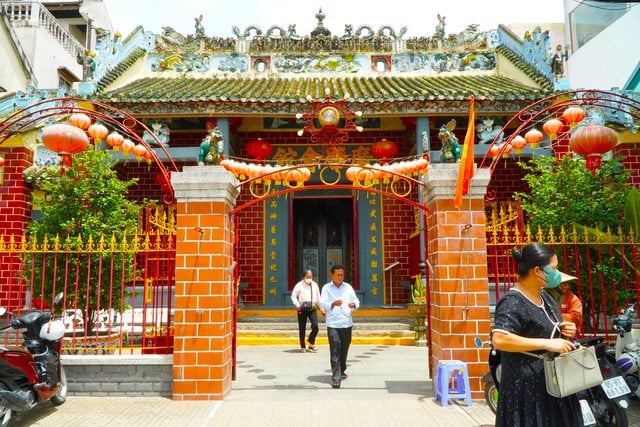
From the outside, Ong Pagoda has colorful colors, the walls are mainly red, the roof stands out with blue tones.
PHOTO: THANH DUY
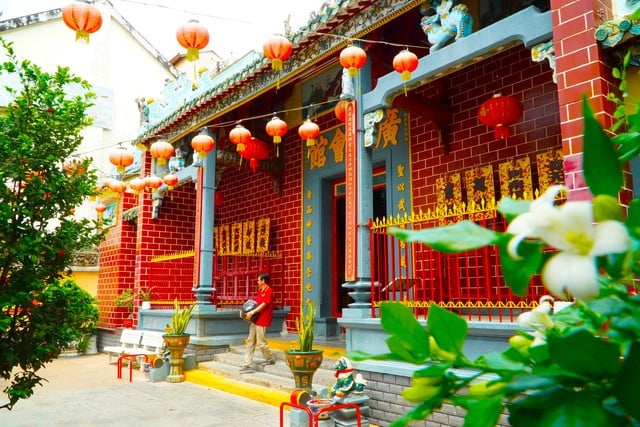
The colors are eye-catching but Ong Pagoda still exudes an ancient, nostalgic look.
PHOTO: THANH DUY
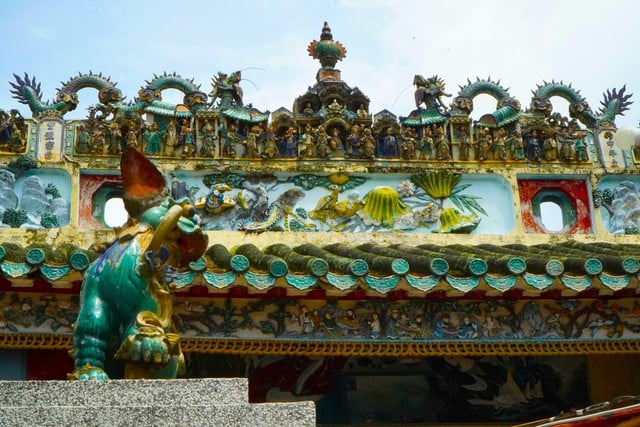
The temple roof is covered with yin-yang tiles, the edges of the roof are made of dark blue glazed ceramic. Ceramic is also the main material used to decorate the temple roof, cleverly arranged with motifs of two dragons fighting for a pearl, fish transforming into a dragon, phoenixes, citadels, human figures...
PHOTO: THANH DUY
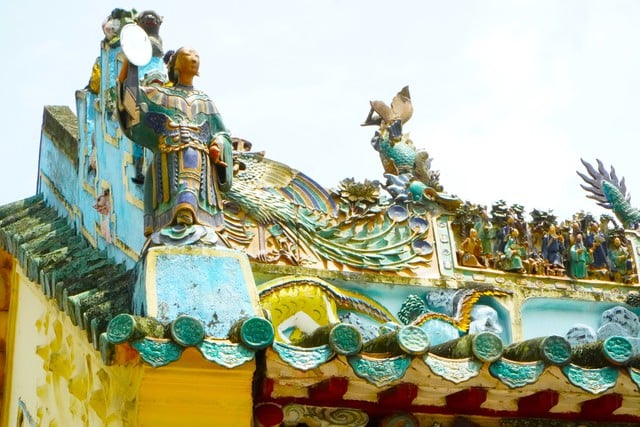
The highlight of the roof is at the two ends of the blade there are two statues of people holding the sun and the moon. Symbolizing the sun - moon, yin - yang harmony.
PHOTO: THANH DUY
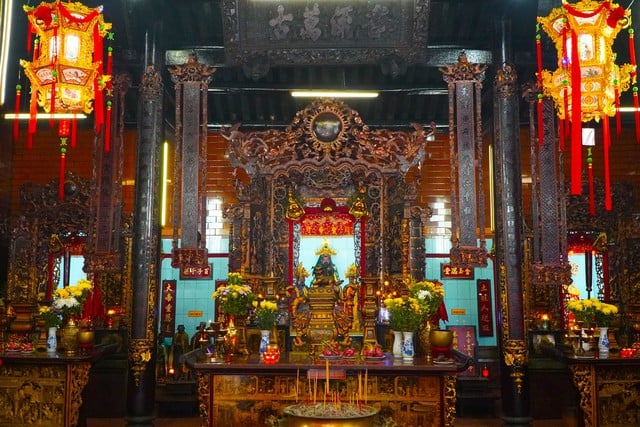
The pagoda is located on a 532m2 plot of land, divided into 3 parts. The front hall is where the God of Fortune and General Ma Tien is worshiped. The main hall worships Quan Cong. This is a god symbolizing the "five constants" (benevolence, justice, courtesy, wisdom, and trust) that has been deeply ingrained in the subconscious of the Chinese people. In addition, the pagoda also worships Buddha Quan The Am, Thien Hau Thanh Mau, Ong Bon...
PHOTO: THANH DUY
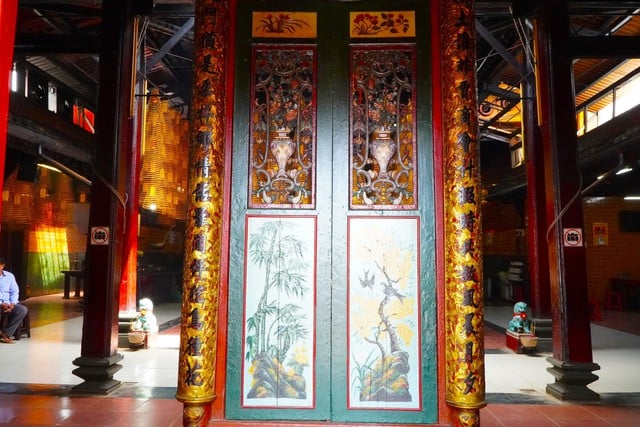
Separating the Front Hall and the Main Hall is a wooden screen that acts as a door to limit visitors from going straight in from the outside, in order to maintain the solemnity of the space inside the temple.
PHOTO: THANH DUY
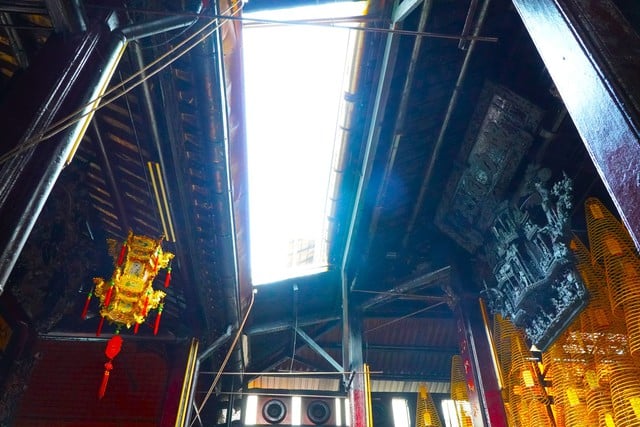
Next is the skylight with a mobile roof, which in addition to adjusting natural light, also has the function of processing incense smoke.
PHOTO: THANH DUY
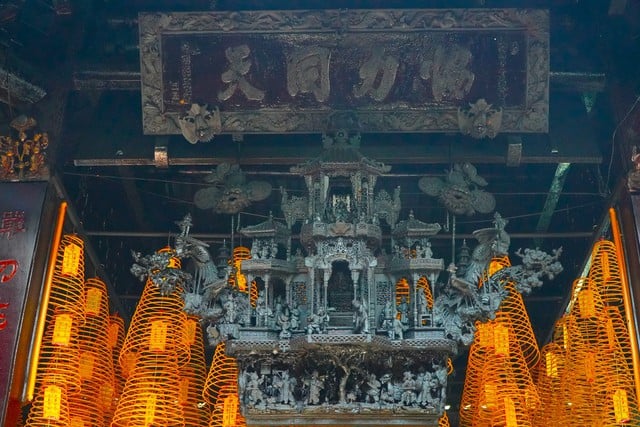
Adjacent is the Central Hall, most impressive with its wooden dragon-shaped boat, especially inside there are countless delicately carved human figures.
PHOTO: THANH DUY
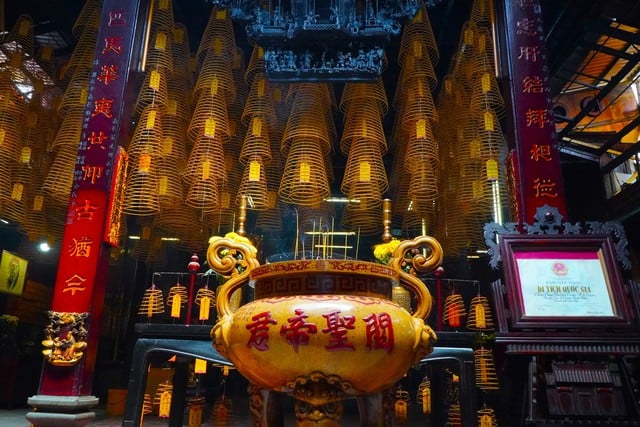
Ong Pagoda is not too big, but every detail in the pagoda makes people stop to look and learn. Because the reliefs are present everywhere, from the panels, horizontal lacquered boards, parallel sentences, crossbeams... The embossed and engraved content is very rich and diverse, recreating legendary stories, Chinese history and details with deep cultural meanings such as carrying water, chopping wood, apricot, orchid, chrysanthemum, bamboo, dragon, phoenix...
PHOTO: THANH DUY
Along with that is the art of exquisite calligraphy. The statues are crafted with many different materials such as wood, plaster, ceramic...
PHOTO: THANH DUY
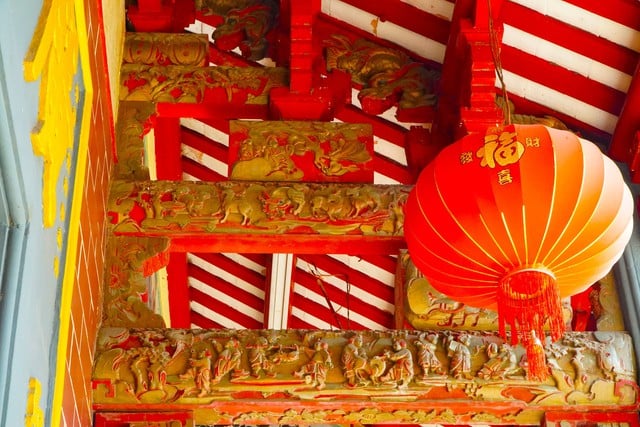
After more than a hundred years of existence, Ong Pagoda still retains its original architecture. Because the entire load-bearing frame of the structure is made of rare wood with a rather complex and sturdy truss system. The roof is supported by 6 rows of red-painted square columns, the base is made of solid monolithic stone.
PHOTO: THANH DUY
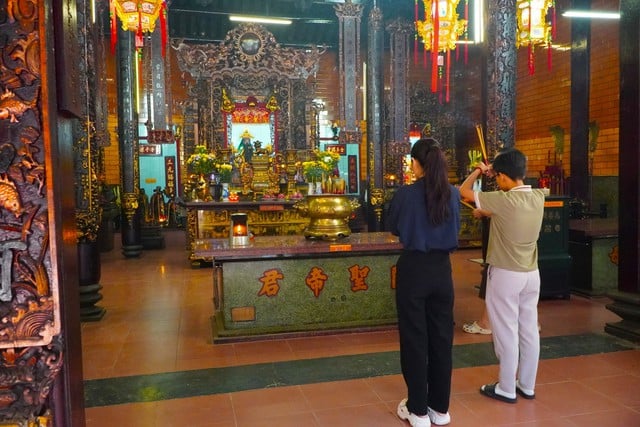
The important event at Ong Pagoda is the Quan Thanh De Quan festival which takes place on the 24th of the 6th lunar month. On normal days, the pagoda also attracts many visitors from all over to come and worship, pray for wealth and well-being.
PHOTO: THANH DUY
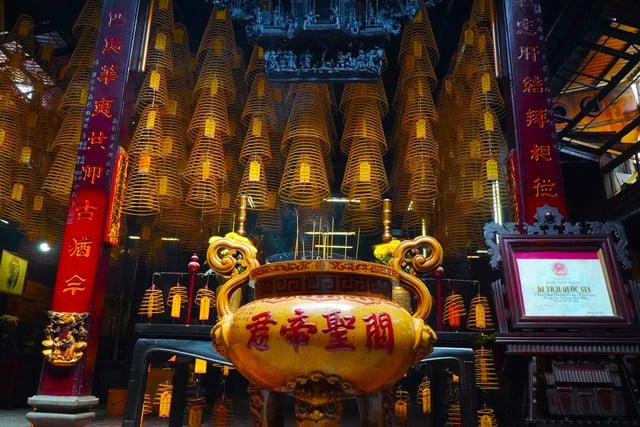
A common form of praying for blessings is to offer incense sticks. The homeowner will write down the wishes on a card, then attach it to the incense stick and hang it up high. Depending on the size, some incense sticks can burn for more than a week.
PHOTO: THANH DUY
Ong Pagoda has an important position in the spiritual life of Can Tho people, especially the Chinese people living here. In addition to its cultural and religious values, this is also a place to shelter and protect revolutionary cadres in Can Tho during the resistance war against the US. With these values, on June 21, 1993, Ong Pagoda was ranked as an architectural and artistic relic by the Ministry of Culture and Information. To date, this pagoda is still an important highlight in the overall beauty of Ninh Kieu wharf, attracting many tourists when coming to Can Tho.
Source: https://thanhnien.vn/doc-dao-ngoi-chua-co-gan-130-nam-tuoi-o-ben-ninh-kieu-185250817112810434.htm


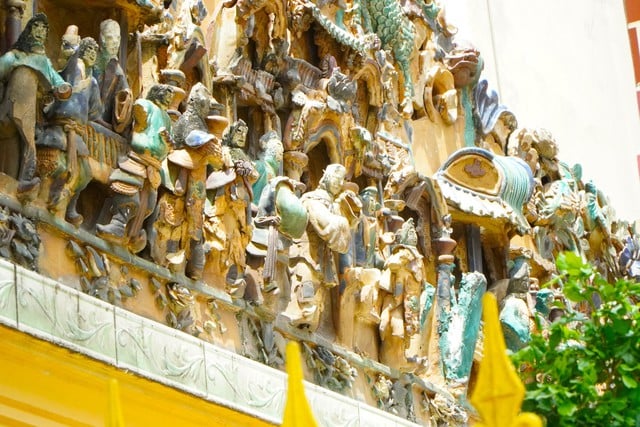
![[Photo] Prime Minister Pham Minh Chinh launched a peak emulation campaign to achieve achievements in celebration of the 14th National Party Congress](https://vphoto.vietnam.vn/thumb/1200x675/vietnam/resource/IMAGE/2025/10/5/8869ec5cdbc740f58fbf2ae73f065076)


![[Photo] Prime Minister Pham Minh Chinh chairs the Government's online conference with localities](https://vphoto.vietnam.vn/thumb/1200x675/vietnam/resource/IMAGE/2025/10/5/264793cfb4404c63a701d235ff43e1bd)


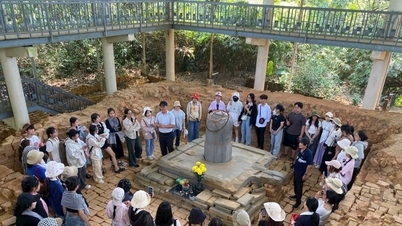

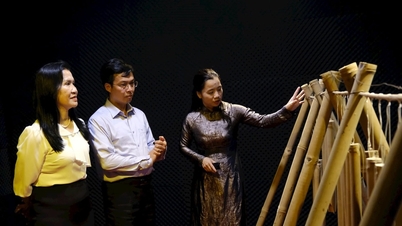


















































![[VIDEO] Summary of Petrovietnam's 50th Anniversary Ceremony](https://vphoto.vietnam.vn/thumb/402x226/vietnam/resource/IMAGE/2025/10/4/abe133bdb8114793a16d4fe3e5bd0f12)

![[VIDEO] GENERAL SECRETARY TO LAM AWARDS PETROVIETNAM 8 GOLDEN WORDS: "PIONEER - EXCELLENT - SUSTAINABLE - GLOBAL"](https://vphoto.vietnam.vn/thumb/402x226/vietnam/resource/IMAGE/2025/7/23/c2fdb48863e846cfa9fb8e6ea9cf44e7)


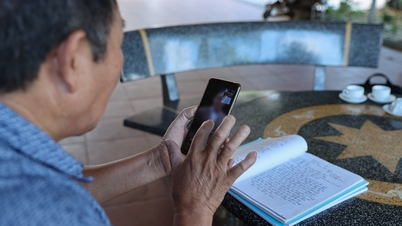











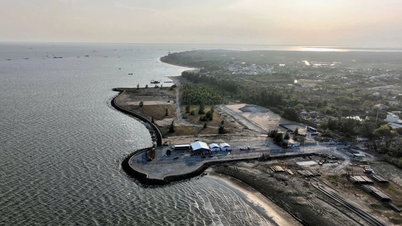
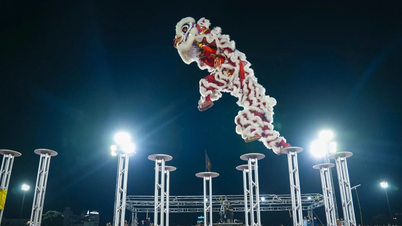

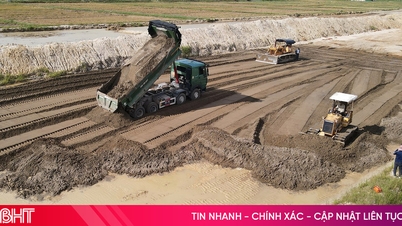


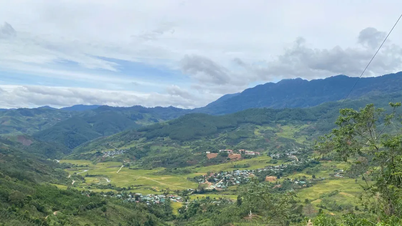













Comment (0)